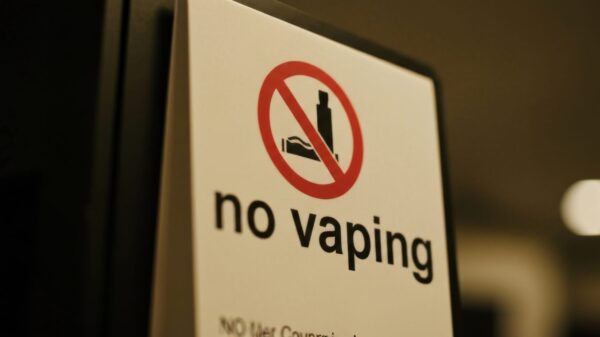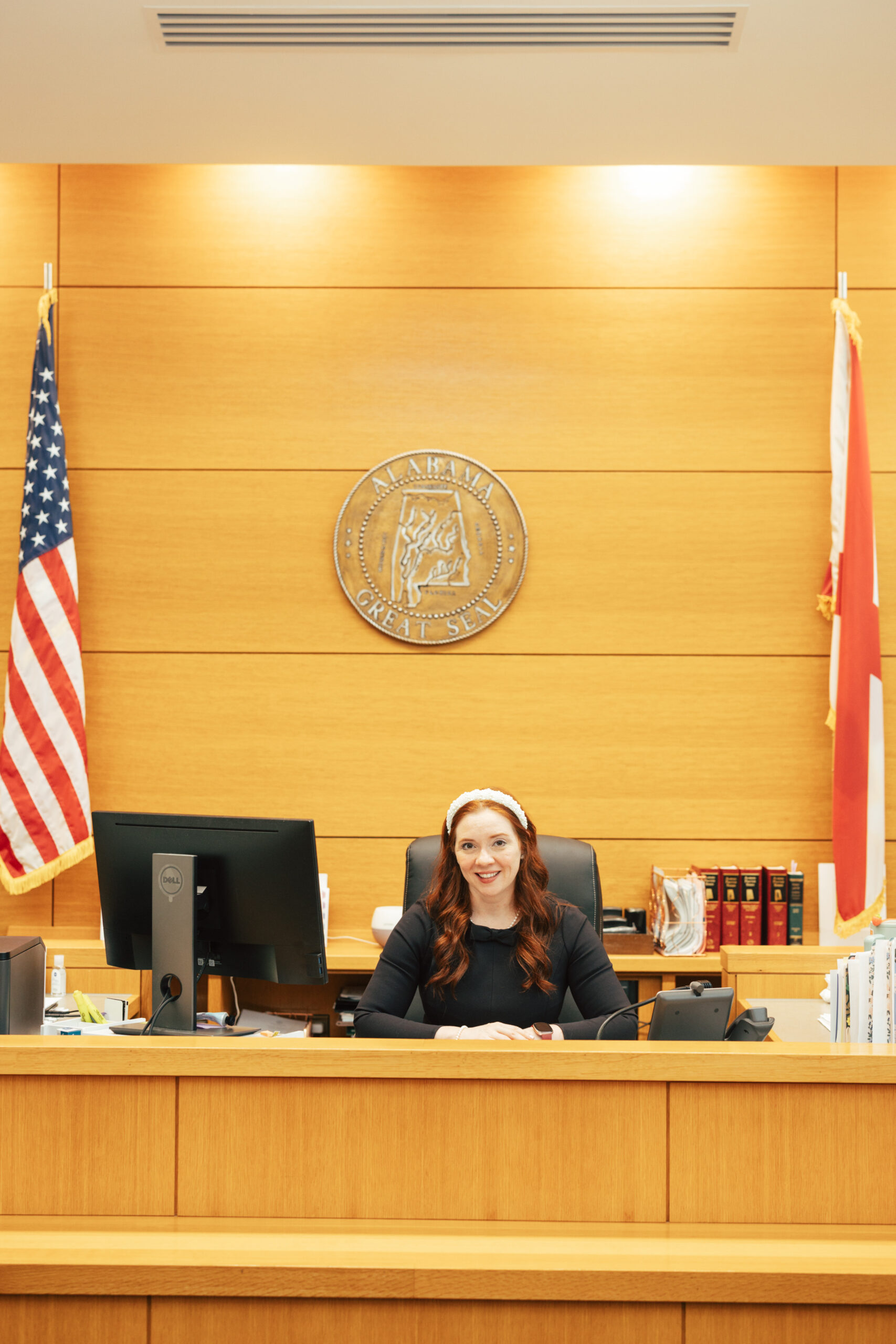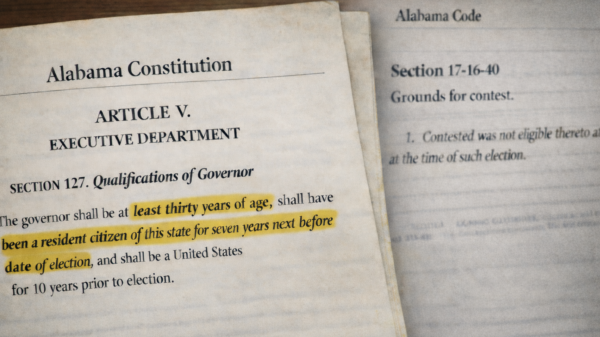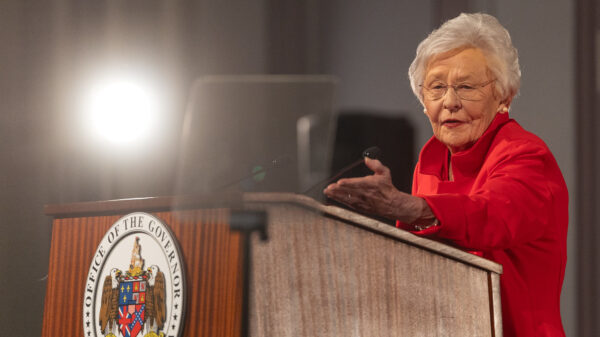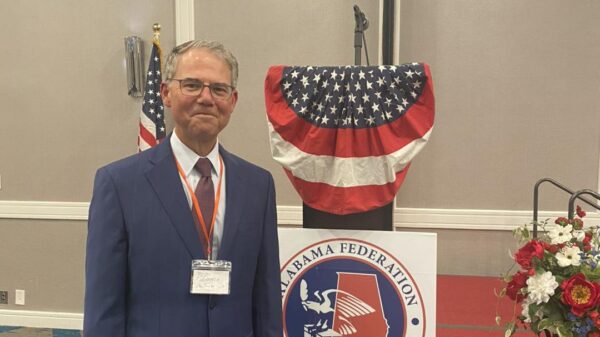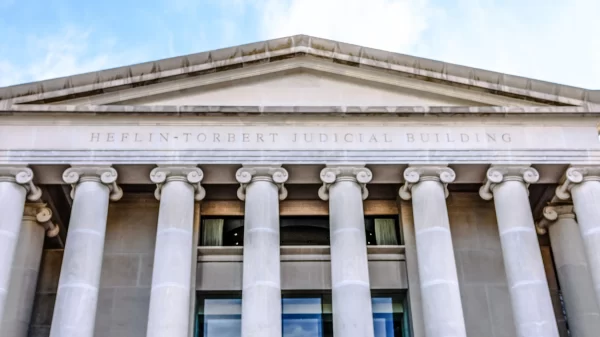AshLeigh Dunham decided to run for a seat on Alabama’s state Supreme Court “ around the time the IVF decision came out,” she recalled during an interview with APR on Thursday. A Birmingham lawyer specializing in family and fertility law, Dunham officially launched her campaign in the Democratic primary last month.
After a controversial 2024 decision by the Alabama Supreme Court required the state Legislature to pass a law to keep in vitro fertilization available for Alabamians, Dunham “started looking into what fetal personhood would mean, not only for IVF, but for reproductive rights in general.”
“I’m an IVF mom, so I had to travel across the country to even get the healthcare I needed to get my daughter, but now I have a daughter, and my two embryos are also girls,” she said. “So, when that decision came out, I was like, we are headed in the wrong direction. And if I don’t, if somebody doesn’t, jump up to protect my daughter’s rights, by the time that she gets old enough this is gonna have terrible consequences for her and other little girls in the state of Alabama.”
When Dunham was asked by APR how she might behave if elected, she compared how judges and justices rule on cases to how preachers reference the Bible during sermons.
“I go to church and my preacher is going to interpret the Bible based on his life experiences. And so yes, he is not necessarily bringing politics into it,” she said. “He’s not necessarily bringing his viewpoint, but those things do alter how you see or how you interpret the Bible. And I think the law is the same way. It is black and white, but what I have been through in my life will somehow impact my decisions on how I think that the law would apply to citizens.”
“I’ve done the work and I feel like at this point in time, we need a fresh set of eyes on the bench,” Dunham continued. “We need somebody on the bench to moderate some positions and to at least give Alabama a little bit more representation of what it actually looks like.”
Dunham’s campaign website lists three main planks on her platform: that “parents should have the right to parent their own children,” supporting “middle of the road solutions” on Second Amendment issues, and “that reproductive healthcare decisions should be between a family and their doctors.”
Asked about that first plank, Dunham noted that Alabama’s constitutional protections for the freedom of religion are more expansive than the First Amendment in the U.S. Constitution. “I don’t think Mary Sue from down the street should be able to tell me what I should allow my daughter to read, or what my daughter is exposed to,” she said, referencing the attempts of groups like Moms for Liberty to restrict the availability of books in public libraries.
As part of Dunham’s campaign, in an unusual tactic for a judicial election, she has begun posting short videos to TikTok and Instagram explaining various court-related news. In one recent video, Dunham described the U.S. Supreme Court’s ruling on Trump v. CASA, Inc., the lawsuit over a January executive order attempting to unilaterally negate the constitutional right of birthright citizenship.
“When the IVF decision came down, I realized that people don’t know what our courts are doing, and I want to provide access to the courts,” Dunham told APR. “Our courts exist to provide protection of the laws for the people of our state, and to protect the interests of the families in our state.”
“So when you look at my socials, you see what I’m doing is educating and trying to listen to people as they ask me questions, and then I’m also trying to, in addition to that, explain in, not legalese, but in real people terms, ‘Hey guys, this is what’s actually happening,’” she said.
Dunham also said during the interview yesterday that she’s been holding “miniature fundraisers in people’s homes” partly so she can connect with voters. She noted near the end of the phone call that fundraising efforts like those are also important because Democratic candidates in Alabama receive little support from the national party as races are rarely competitive and “we have to invest in our blue candidates.”
“If we don’t start rebuilding democracy from the bottom up, we’re not gonna be able to protect civil rights, women’s rights, children,” she argued.
Assuming Dunham wins the Democratic primary, she will go on to face current Associate Justice Greg Shaw in the 2026 general election. Shaw ran unopposed in his most recent reelection campaign back in 2020.
During last year’s elections, only one of the five races for a seat on Alabama’s Supreme Court had a Democratic candidate: Circuit Court Judge Greg Griffin. Griffin only received just above 34 percent of the vote. Republican candidates went unopposed in the other four races.
Dunham seemed unperturbed when these past results were mentioned, saying voter suppression is a persistent problem in the state and noting Alabama Democrats currently lack any representation on the state Supreme Court.
“Number one, our Supreme Court should at the very least reflect what our state looks like, and right now we’re looking at an entirely red Supreme Court,” Dunham said. “I think that we really need to turn the court at least a little purple, if not magenta. We need to make sure we bring balance to the court.”















